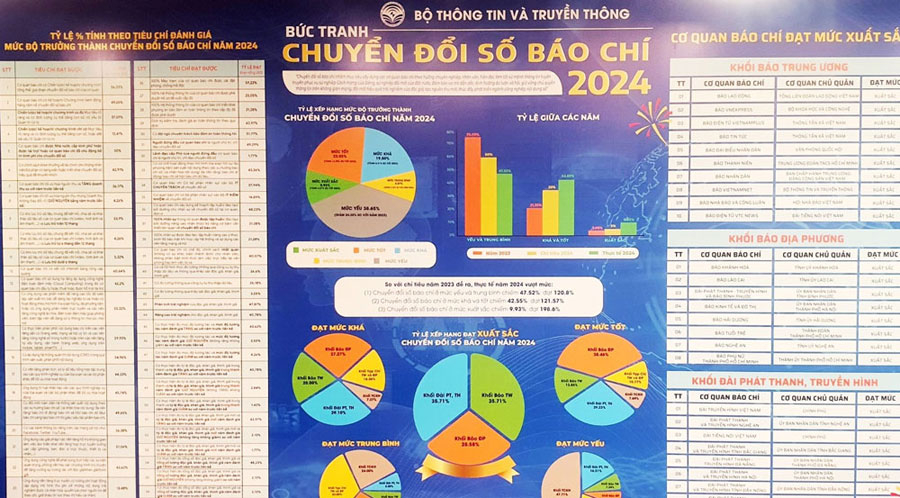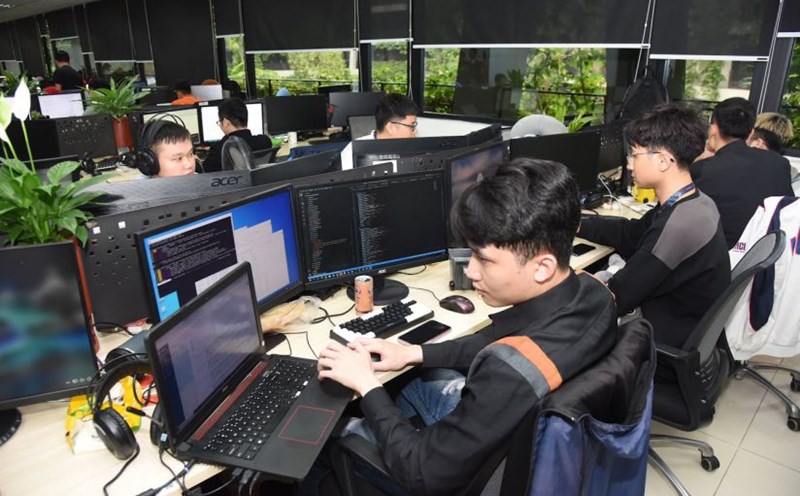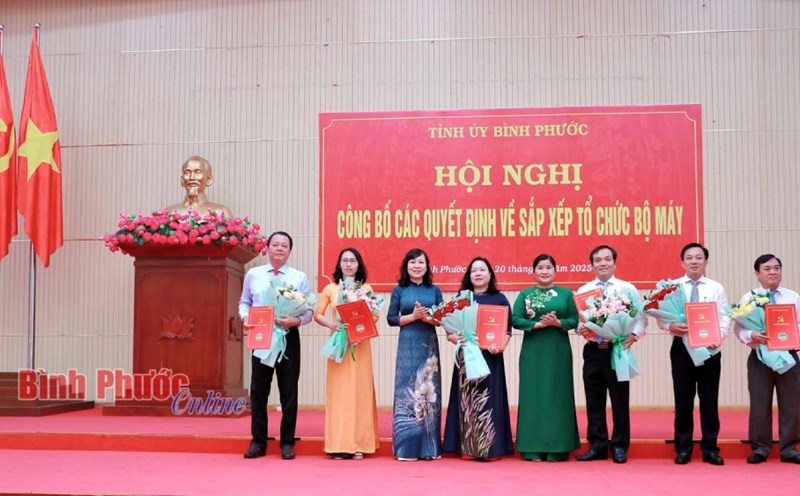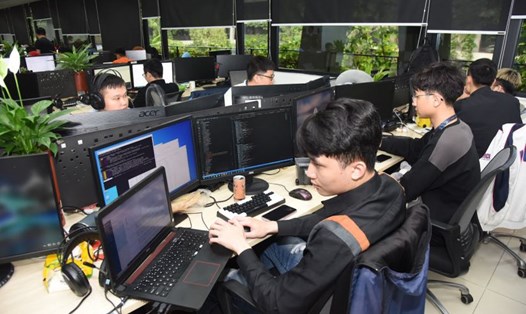Vietnam will be in the global top 15 in digital technology.
2025 is the year the country enters a new era, an era of the nation's strong rise to become a developed country with high income, prosperity and wealth. Vietnam also aims to become an upper middle-income country by 2030, at which time, Vietnam's per capita income ranking will be in the top 100 globally (currently, Vietnam is ranked around 120).
With the above goals, speaking at the conference summarizing the work of the information and communications sector in 2024 and deploying tasks for 2025 on the morning of December 29, 2024, Minister of Information and Communications Nguyen Manh Hung acknowledged that digital infrastructure, digital technology, and digital industry must go ahead and go faster, and the international ranking in 2030 must be in the top 50 globally, twice as high as the economic ranking. This is the goal that Resolution 57 of the Politburo on Breakthrough in Science, Technology, Innovation and National Digital Transformation sets for the information and communications sector.
To answer the question "Can we do it?", Minister Nguyen Manh Hung pointed out that, in terms of the digital technology industry as a whole, and in terms of the proportion of Vietnam's value in total revenue, Vietnam is in the top 20. We will continue to maintain a high ranking, strive to be in the global top 15 and increase the proportion of Vietnam's value from 32% to 50% by 2030.
Regarding the digital economy, Vietnam is also ranked 41st in terms of the proportion of the digital economy compared to GDP, but is also increasing its ranking quite quickly. In 2024, this proportion will be nearly 19%, and in 2025 it will reach and exceed the target of 20%. We aim for the digital economy to account for 30-35% of GDP by 2030 and at that time Vietnam will be in the global top 30.
Along with the position of other fields of the IT industry such as post, telecommunications, data infrastructure on the global rankings, Minister Nguyen Manh Hung said that by 2030, Vietnam's digital infrastructure, digital technology, digital industry, and digital transformation must be in the global top 50, with some fields in the top 20-30. This is a noble mission. The mission of going ahead, going fast, entering the group of developed countries, to create the premise and foundation for national development, for digital transformation, for the development of the digital economy, and digital society.
"We have the opportunity of the fourth industrial revolution, the digital technology revolution. We have the aspiration for a strong Vietnam. Meeting these three conditions is enough to rise up and help the country grow by double digits" - Minister Nguyen Manh Hung emphasized.
The head of the information technology industry also stated that the information technology industry is digital infrastructure, digital technology, digital industry, leading national digital transformation, and digital media, so it must take on the mission of creating platforms for the country to develop. "If Vietnam wants to fly, it must have wings, one side is technology, the other side is the spiritual strength inspired by the press, media, and publishing" - Minister Nguyen Manh Hung emphasized.
The press is not out of the digital technology "game"
Regarding the press sector, according to Minister of Information and Communications Nguyen Manh Hung, in 2025, the Vietnamese Revolutionary Press will celebrate its 100th anniversary. At present, the country's press workforce consists of 41,000 people, of whom 23,000 are granted press cards. Each year, press agencies create about 40 million news articles, which when entering cyberspace will spread into 400 million news articles, forming the mainstream of cyberspace. Each year, 20,000 hours of radio and 50,000 hours of television are produced. The proportion of policy communication accounts for 20%.

The Minister of Information and Communications said that the Vietnamese revolutionary press has made progress in terms of content and the team of journalists, meeting the public's information needs. However, in the digital age, if the mainstream press wants to maintain its position, it must do things differently from social networks, returning to the core values of journalism. That is authentic, accurate, objective news, accountability, professional ethics, instead of reporting, telling stories, leading, orienting society, it must analyze, evaluate, and instead of commenting, it must provide solutions.
Minister Nguyen Manh Hung also noted that if the press follows social networks, we will be behind, so there must be a difference with social networks, which is to use digital technology to regain the battlefield, increase the number of readers, and from there, advertising will also increase.
Regarding digital transformation, Minister Nguyen Manh Hung said that in the coming time, it is necessary to promote digitalization and digital transformation of press agencies. The Prime Minister has issued a strategy for digital transformation of the press, considering cyberspace as the main front of the press and success or failure depends on this. Many press agencies have made efforts to research and develop digital transformation projects with the goal of building press agencies in a professional, humane and modern direction, reaching a wide audience.
The Ministry of Information and Communications has also issued a program to implement this strategy, in which the important point is to provide criteria to measure and evaluate the maturity level of press agencies in digital transformation. The Ministry of Information and Communications has established a support center, issued a handbook and developed a training program for Editors-in-Chief in the issue of digital transformation, to create changes in this issue.
Minister Nguyen Manh Hung also said that press agencies must provide specialized digital skills training for reporters and must invest to maintain competitiveness in the digital space.
(Posted on the special edition of Lao Dong Xuan At Ty)











